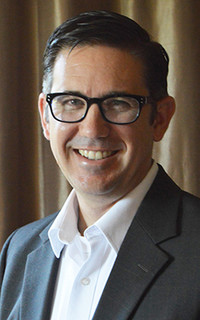Pastoral Care of the Family Calls for Missionary Conversion

“Families are not a problem; they are first and foremost an opportunity.” (Amoris Laetitia, 7, hereafter AL)
The Catholic Church is often accused of offering people an unrealistic set of requirements in her teachings on marriage. This objection is based on a fundamental misunderstanding of the nature of the teachings of Christ because it accuses Jesus (and therefore his Church) of being a source of oppression, as though he walked around coercing people to conform to his teachings. Contrary to this distortion, the Church proposes the teachings of Jesus Christ in order to “make disciples of all nations.” (Matthew 28:19) Many, if not all, of the teachings on discipleship challenge people to change, to experience conversion away from one way of living in order to “walk in newness of life.” (Romans 6:4) Because of this call to conversion, “the Church is a sign of contradiction… in her teaching on the family.” (AL, 200)
In the pastoral care of the family, we all need conversion, clergy, parents, and even children. This is a fact of life because we are disciples. For this reason, every effort to help families “calls for missionary conversion by everyone in the Church,” and demands that preachers of the good news about families are “not content to proclaim a merely theoretical message without connection to people’s real problems.” (AL, 201) “The Synod Fathers emphasized that,” this conversion begins in the home because, “Christian families, by the grace of the sacrament of matrimony, are the principal agents of the family apostolate.” (AL, 200)
Pope Francis outlines his vision for marriage preparation as “a kind of ‘initiation’ to the sacrament of matrimony, providing couples with the help they need to receive the sacrament worthily and to make a solid beginning of life as a family.” (AL, 207) He calls for a “renewed proclamation of the kerygma,” the good news of salvation and the redemption of marriage. (AL, 207) The Pope cautions that we should not expect more than what is actually possible from the marriage preparation courses offered by our parish or diocese during the time of engagement because “learning to love someone does not happen automatically, nor can it be taught in a workshop just prior to the celebration of marriage.” (AL, 208) To help the engaged understand this he proposes that “marriage preparation should ensure that the couple does not view the wedding ceremony as the end of the road, but instead embark upon marriage as a lifelong calling based on a firm and realistic decision to face all trials and difficult moments together.” (AL, 211)
Therefore, he calls for renewed emphasis on support for the newly married. Pope Francis offers advice, acknowledging that the union of marriage “is real and irrevocable, confirmed and consecrated by the sacrament,” that each spouse must approach marriage as a “lifelong project,” and, “must set aside all illusions and accept the other as he or she actually is: an unfinished product, needing to grow, a work in progress.” (AL, 218) There is no need, the Pope says, “for couples to resign themselves to an inevitable downward spiral or a tolerable mediocrity.” (AL, 232)
Considering marriage as a “lifelong project” the Pope does not approach the reality of crises in marriages as an obstacle or cause of division, but instead insists that “couples should be helped to realize that surmounting a crisis need not weaken their relationship; instead, it can improve, settle and mature the wine of their union.” (AL, 232) In this approach to moments of crisis, spouses hold onto each other even more tightly with love and support when they face difficulties. Following the advice of St. Peter they can find reasons to “rejoice in so far as you share Christ’s sufferings, that you may also rejoice and be glad when his glory is revealed.” (1 Peter 4:13) In doing spouses can choose to suffer together with one another and with Christ and discover the paradoxical power of the Cross and the beauty of redemptive suffering. As St. Paul said, “When I am weak, then I am strong.” (2 Corinthians 12:10)
He also comments on the effects of the throwaway culture in which it is “more and more common to think that, when one or both partners no longer feel fulfilled, or things have not turned out the way they wanted, sufficient reason exists to end the marriage. Were this the case, no marriage would last.” (AL, 237) What does Pope Francis propose that spouses do when they reach a point where one or both of them ask “is this marriage worth continuing?” He invites them to “realistically accept that the other cannot fulfill all their cherished dreams.” (AL, 238) He says they should, “avoid thinking of themselves as martyrs,” and, “make the most of whatever possibilities family life gives them [while] they work patiently at strengthening the marriage bond.” (AL, 238) He firmly believes that “every crisis can be a new “yes”, enabling love to be renewed, deepened and inwardly strengthened.” He invites all married people to become people who, “when crises come, they are unafraid to get to the root of it, to renegotiate basic terms, to achieve a new equilibrium and to move forward together. With this kind of constant openness, they are able to face any number of difficult situations.” (AL, 238) This is how spouses can respond to the call to conversion in the particular circumstances of their own marriage.
“In any event, while realizing that reconciliation is a possibility, we also see that “what is urgently needed today is a ministry to care for those whose marital relationship has broken down.” (AL, 238) We will take up this need in the next and final article on Amoris Laetitia.

By Dino Durando, Director of the Family Life Office.


